Online Marketing Tips Blog
In this Daily blog, I'll try to answer the most burning questions for online marketing that I get in my consulting business. We help online business owners who are in affiliate marketing, coaching, eLearning and Online Events every single day. I'll share that info with you!

Funnel Hacking 101: What It Is and How It Started
What Is Funnel Hacking?
If you’ve been around the digital marketing world for any amount of time, you’ve probably heard the term “funnel hacking.” It’s a buzzword that can sound a bit mysterious, but at its core, funnel hacking is a straightforward (and genius) strategy that involves studying and modeling successful sales funnels from competitors or similar businesses to improve your own.
Sales funnels are a key component of digital marketing, guiding potential customers through a series of steps with the ultimate goal of converting them into paying customers. Funnel hacking takes this process and applies analytical brilliance—it’s about uncovering how others have successfully optimized these steps, reverse-engineering their strategies, and applying what works to your own marketing efforts.
But where did this concept start, and how did it gain traction as a must-know methodology for digital marketers? The origins of funnel hacking bring us to two well-known names in the marketing and entrepreneurial space—Tony Robbins and Russell Brunson.
Origins of Funnel Hacking
Tony Robbins: Planting the Seeds of Sales Psychology
Tony Robbins, a globally recognized motivational speaker and business strategist, was one of the first to popularize the psychology behind winning sales strategies. His emphasis on understanding customer behavior and using structured methods to guide their decisions laid the groundwork for what we know today as funnel hacking.
Robbins was a master at identifying patterns in human behavior, a skill he translated into the business world. His teachings encouraged entrepreneurs to get inside the minds of their customers, digging into what motivates their choices and using those insights to craft targeted marketing strategies.
Though he didn’t coin the term “funnel hacking,” Robbins’ principles on value-driven engagement and scalable business models provided an essential foundation for the methodology to thrive.
Russell Brunson’s Game-Changing Vision
While Tony Robbins set the stage, it was Russell Brunson, founder of the massive SaaS platform ClickFunnels, who popularized funnel hacking in its modern sense and turned it into a movement. Brunson didn’t just teach the idea—he equipped digital marketers with the tools to do it themselves. He defined funnel hacking as a repeatable process and packaged it in a way that made it accessible for marketers, entrepreneurs, and businesses of all sizes.
Brunson’s ClickFunnels platform allows users to build high-performing sales funnels with ease. But perhaps more impactful was his commitment to teaching marketers how to reverse-engineer the success of others. Beyond just telling digital marketers to “figure it out,” he mapped out the process step by step in his trainings, books (like DotCom Secrets), and webinars.
Brunson coined the term “funnel hacking” to describe what marketers had already been doing for years—researching competitors—but framed it as a structured process. This added clarity and widespread adoption to the practice.
The Funnel Hacking Process
The brilliance of funnel hacking lies in its simplicity. Here's a step-by-step breakdown of how it works and why it’s such a vital skill for digital marketers today.
Step 1: Identify Your Competitors
The first step of funnel hacking is finding successful competitors in the niche you’re targeting. These are the businesses or entrepreneurs that are already excelling with the audience you want to serve. Whether they’re thought leaders or market disruptors, their funnels hold valuable insights into what your ideal customers respond to.
Step 2: Analyze and Reverse-Engineer Their Funnel
Next, you’ll do a deep-dive analysis of your competitors’ funnel. This includes examining their lead magnets, landing pages, email sequences, pricing strategies, upsell offers, and more. It’s not about copying—it’s about understanding their approach.
For example:
What do their sales pages look like?
What kind of language do they use?
How are they enticing customers to take action?
This step allows you to pinpoint the factors behind their success and tailor these insights to match your brand and audience.
Step 3: Model (Don't Copy) Their Strategies
Funnel hacking isn’t about plagiarism or copying someone else’s funnel step-by-step. Instead, it’s about modeling successful strategies while staying original and unique to your brand. Use competitor strategies as a launching pad, but make improvements or adjustments that cater to your target audience.
For instance, if a competitor is seeing results with free downloadable guides as lead magnets, consider offering one as well—but with unique content and design aligned with your brand.
Step 4: Implement and Test Your Funnel
Once you’ve modeled your funnel and crafted the various components, it’s time to implement your strategy. But funnel hacking doesn’t stop there; consistent testing, evaluation, and optimization are essential to improve conversion rates and scale your efforts.
From A/B testing landing page designs to tweaking email subject lines, the data-driven analysis continues long after implementation.
Why Funnel Hacking Works
The genius of funnel hacking lies in its blend of creativity and practicality. Here’s why it’s such a powerful strategy for digital marketers and entrepreneurs alike.
Saves Time and Resources
Funnel hacking allows you to bypass some of the trial-and-error guesswork that comes with building a funnel from scratch. By analyzing what’s already working in your industry, you can start with a better-informed plan.
Reduces Risk
Investing in a marketing funnel without knowing whether it will work can be risky. Funnel hacking minimizes that risk by basing decisions on proven strategies.
Inspires Innovation
Seeing what’s already out there sparks creativity. By studying competitors, you gain insights that can be adapted, improved, and leveraged in entirely new ways.
Helps You Stay Competitive
Funnel hacking also ensures that you’re staying up-to-date with industry trends, customer preferences, and best practices, keeping your business ahead of the curve.
Practical Tools for Funnel Hacking
If you’re ready to jump into funnel hacking, several tools can help simplify and optimize the process:
ClickFunnels (Russell Brunson’s platform): The go-to tool for building and optimizing sales funnels.
SEMrush or Ahrefs: Great for deep-diving into competitors’ content and ad strategies.
Hotjar: Helps analyze user behavior on landing pages to refine and improve.
Canva or Adobe Spark: Tools for creating visually appealing elements within your funnels.
Funnel Hacking in 2024 and Beyond
Funnel hacking has evolved since the days of Russell Brunson’s early teachings, but its core principles remain the same. Today, marketing is more customer-centric than ever, and personalization is key. Funnel hacking now includes understanding psychographic data, leveraging AI-powered analytics, and introducing omni-channel strategies that meet customers where they are.
The future of funnel hacking will likely lean deeper into AI and machine learning, enabling marketers to tweak their strategies even faster and more strategically.
Take Your Funnels to the Next Level
Funnel hacking isn’t just a tactic—it’s a mindset. By thinking like a successful competitor and reverse-engineering what works, you can stay ahead of the game in today’s fast-paced digital marketing landscape.
Whether you’re an entrepreneur launching your first digital product or a seasoned marketer scaling a proven business model, the principles of funnel hacking hold endless potential.
Start exploring the strategies that work for others, but remember—your secret sauce is what makes your funnel yours. Build on what works, innovate where you can, and always keep your target audience at the heart of your strategy.
Are you ready to master funnel hacking? The best solution for you, for exclusive digital marketing tips, tools, and insights that will take your conversions and funnels to the next level, is the One Funnel Away Challenge. Check it out and see your business grow!
Disclaimer: If you click on links we provide and make a purchase, we may receive compensation. There is never any guarantee of income in any of the links or programs we provide.
If you have specific questions you would like to see answered in this blog, please send them to me at tim@allaffiliatecash.com. I will try to address every question here.
If you follow the links in my blog, some of them will be affiliate links and I will be compensated if you purchase a course or product from these links. This is no way increases your price or changes my opinion on these courses. I only recommend things I use in my business.
For the absolute best training online for Affiliate Marketing, Coaching, Events & Masterminds and eLearning - Online Courses: Check out our Flagship Program Here.

Copyright © 2025 | All Affiliate Cash | All Rights Reserved
There may be affiliate links on these pages. When you follow them and purchase something, I may be paid a commission. This does not raise your cost of the item, and does not influence my opinion or review of the item in any way.
NOT FACEBOOK™: This site is not a part of the Facebook™ website or Facebook Inc. Additionally, This site is NOT endorsed by Facebook™ in any way. FACEBOOK™ is a trademark of FACEBOOK™, Inc.

